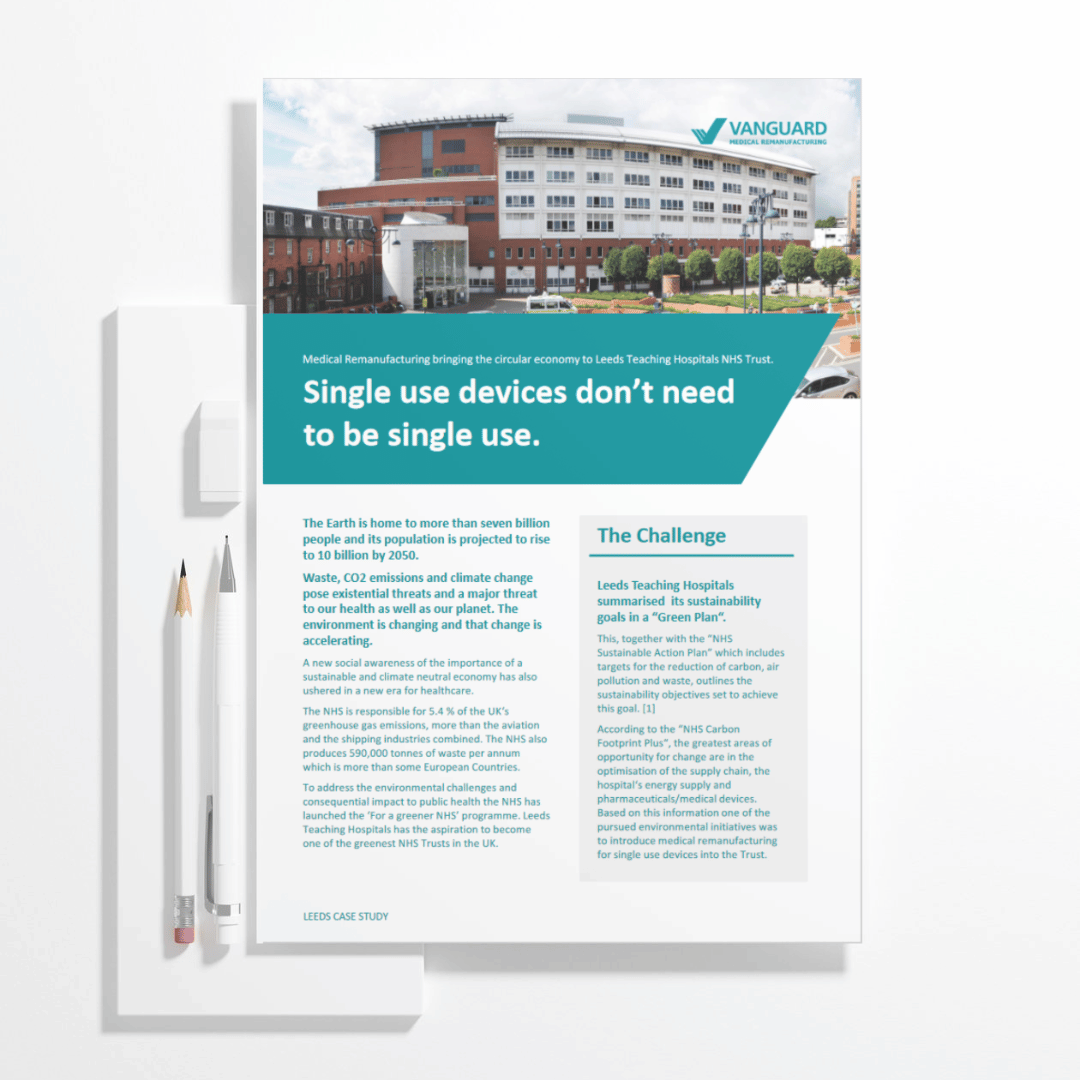Case Studies
MedTech Spotlight Report: Accelerating the adoption of the circular economy
The MedTech Spotlight Report highlights the role of the circular economy in medical technology.
One example is EP catheters, which are traditionally marketed as single-use products. NHS Trusts such as Leeds and Norwich have successfully implemented remanufactured catheters (more on Pages 19 and 20).
Another case involves Harmonic Shears – these minimally invasive instruments used in surgical procedures, the report confirms that two models have been successfully remanufactued to meet all regulatory standards (more on Page 25).
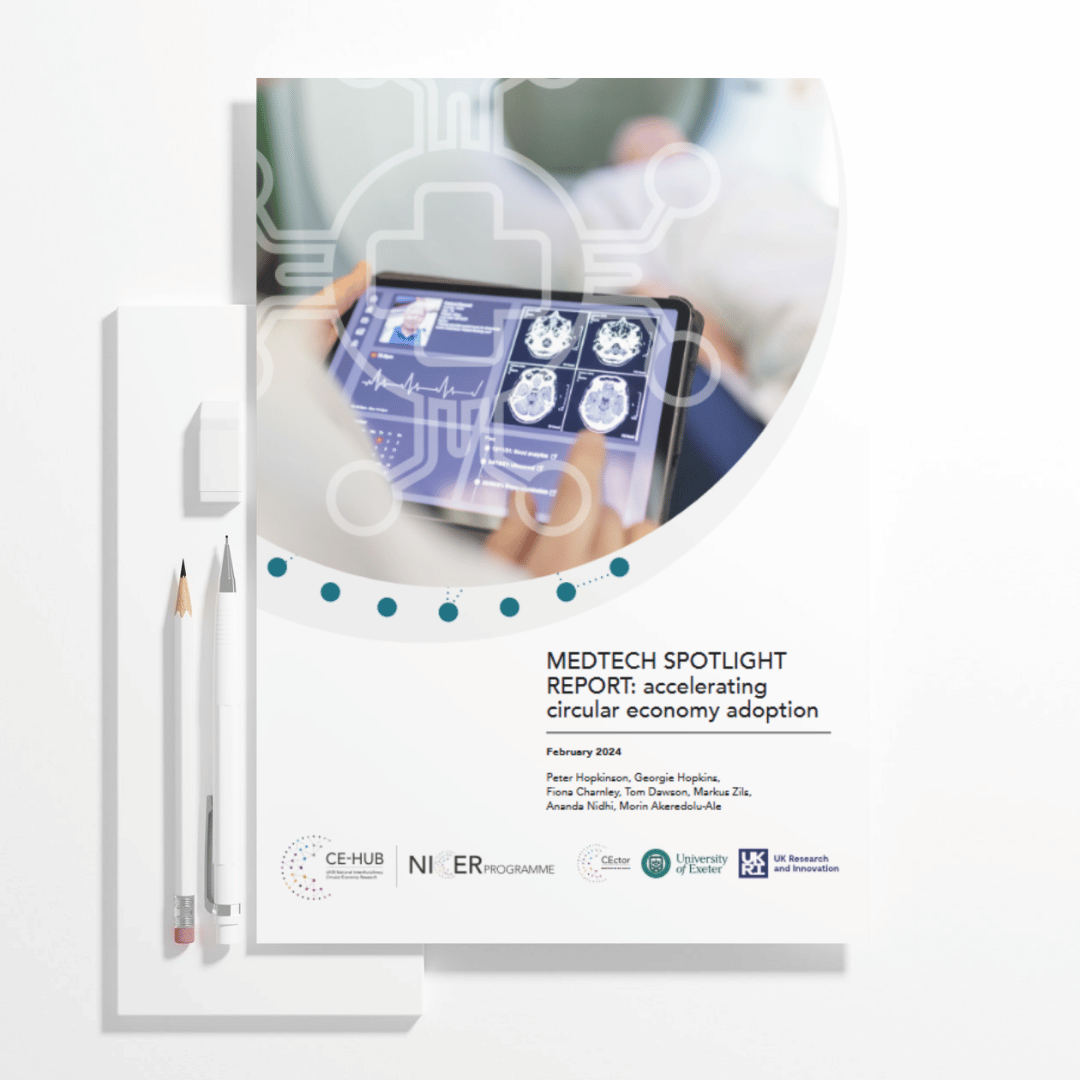
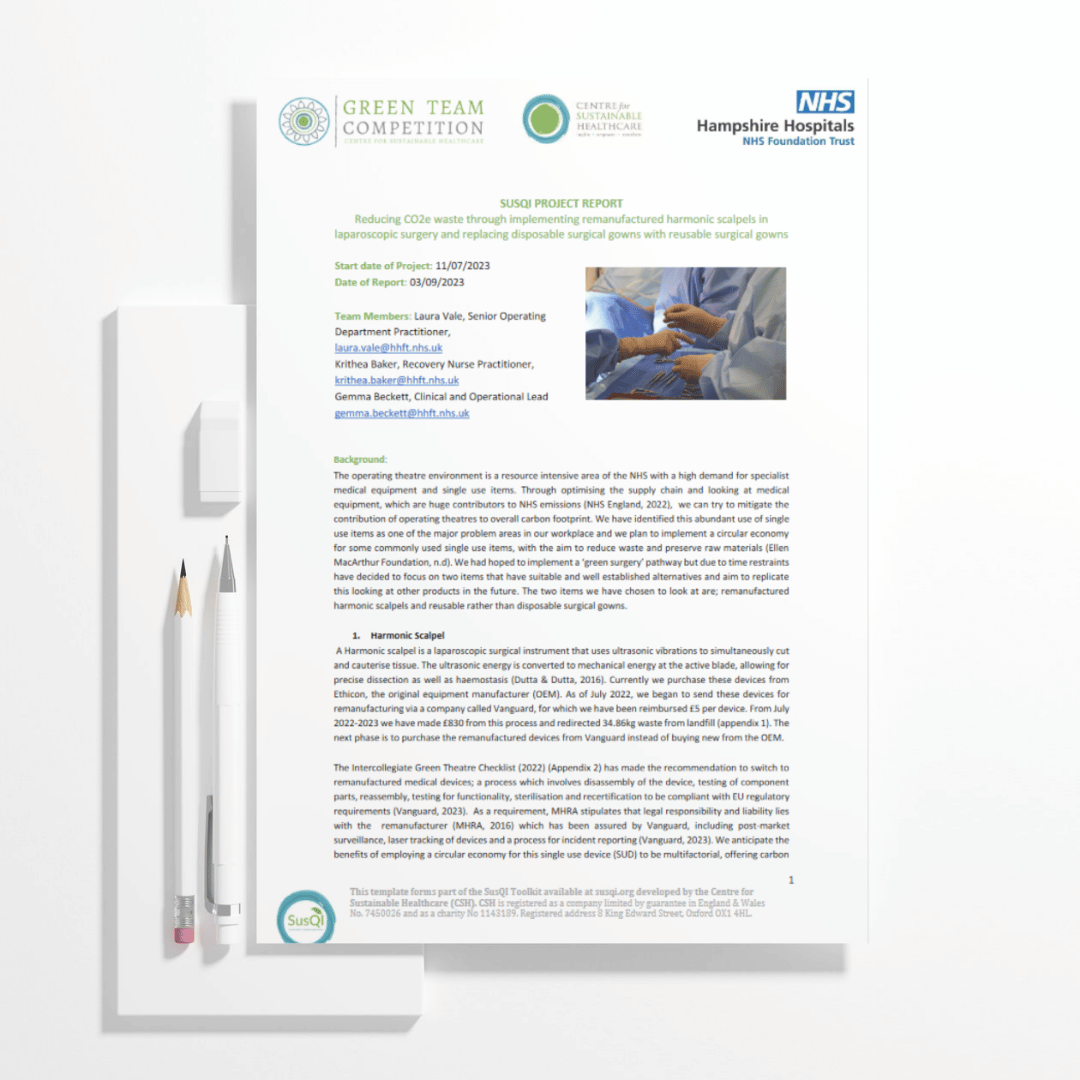
Hampshire NHS Trust: Reducing CO₂ Emissions in Operating Theatres Without Compromising Safety
The team at Hampshire Hospitals NHS Trust is showing it’s possible; by switching to remanufactured Harmonic scalpels and reusable surgical gowns, they’ve significantly cut both emissions and costs, all while maintaining high clinical standards.
It’s an encouraging pilot project paving the way towards more sustainable, low-impact surgery — with support from Vanguard and other partners.
Royal Wolverhampton NHS Trust: Savings and Sustainability in the EP Lab
The study “Savings & Sustainability in Wolverhampton EP Lab” explores how The Royal Wolverhampton NHS Trust is cutting both costs and carbon emissions as part of the For a Greener NHS campaign, which aims to achieve a ‘net zero’ healthcare system by reducing the environmental impact of NHS services.
The Electrophysiology (EP) Lab in Wolverhampton has taken a leading role in this initiative by reprocessing single-use medical devices (SUDs), such as EP catheters. This approach has delivered substantial cost savings and significantly reduced CO₂ emissions.
Evidence shows that using reprocessed devices is both safe and effective. As a result, the hospital is saving thousands of pounds each year and sending far less medical waste to landfill.
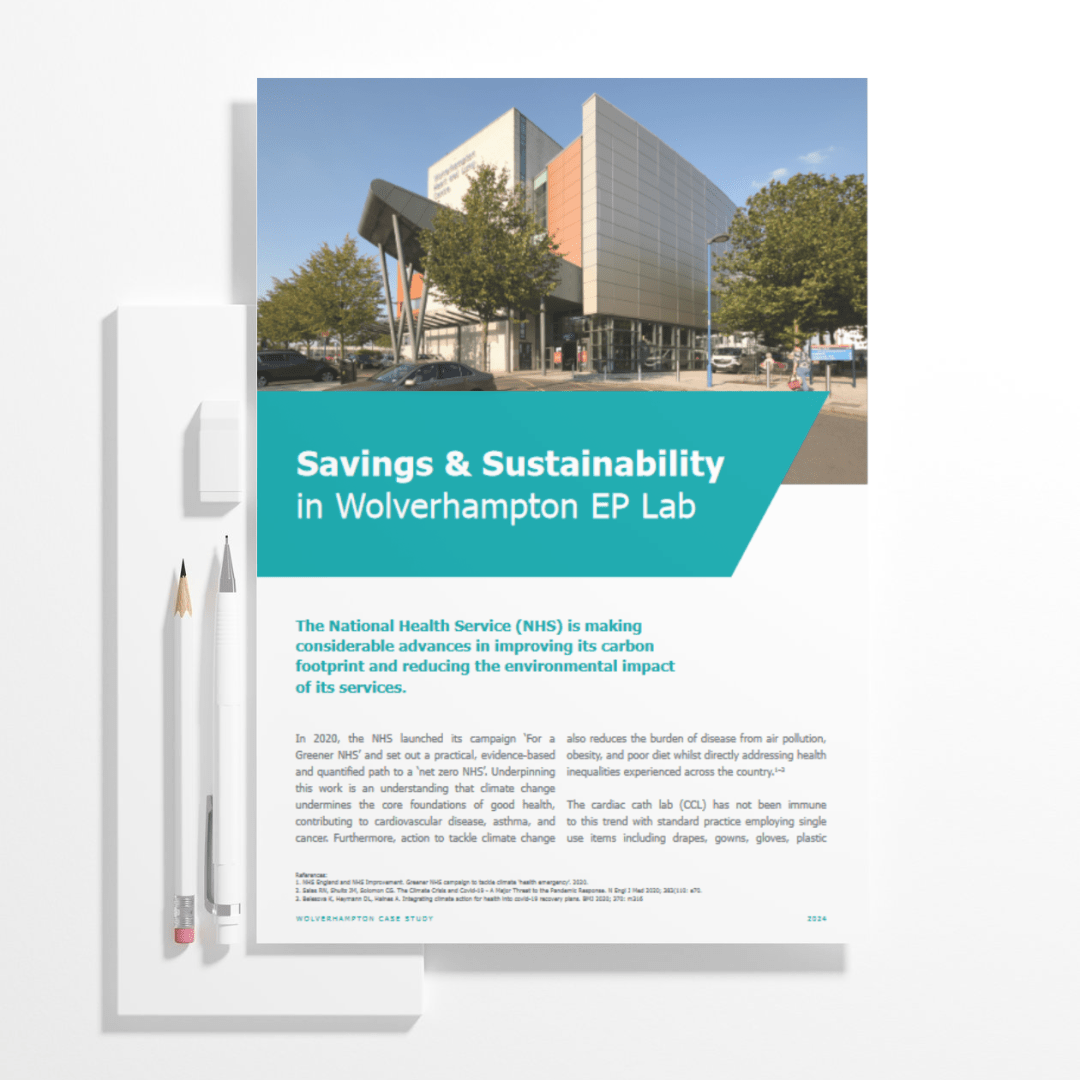
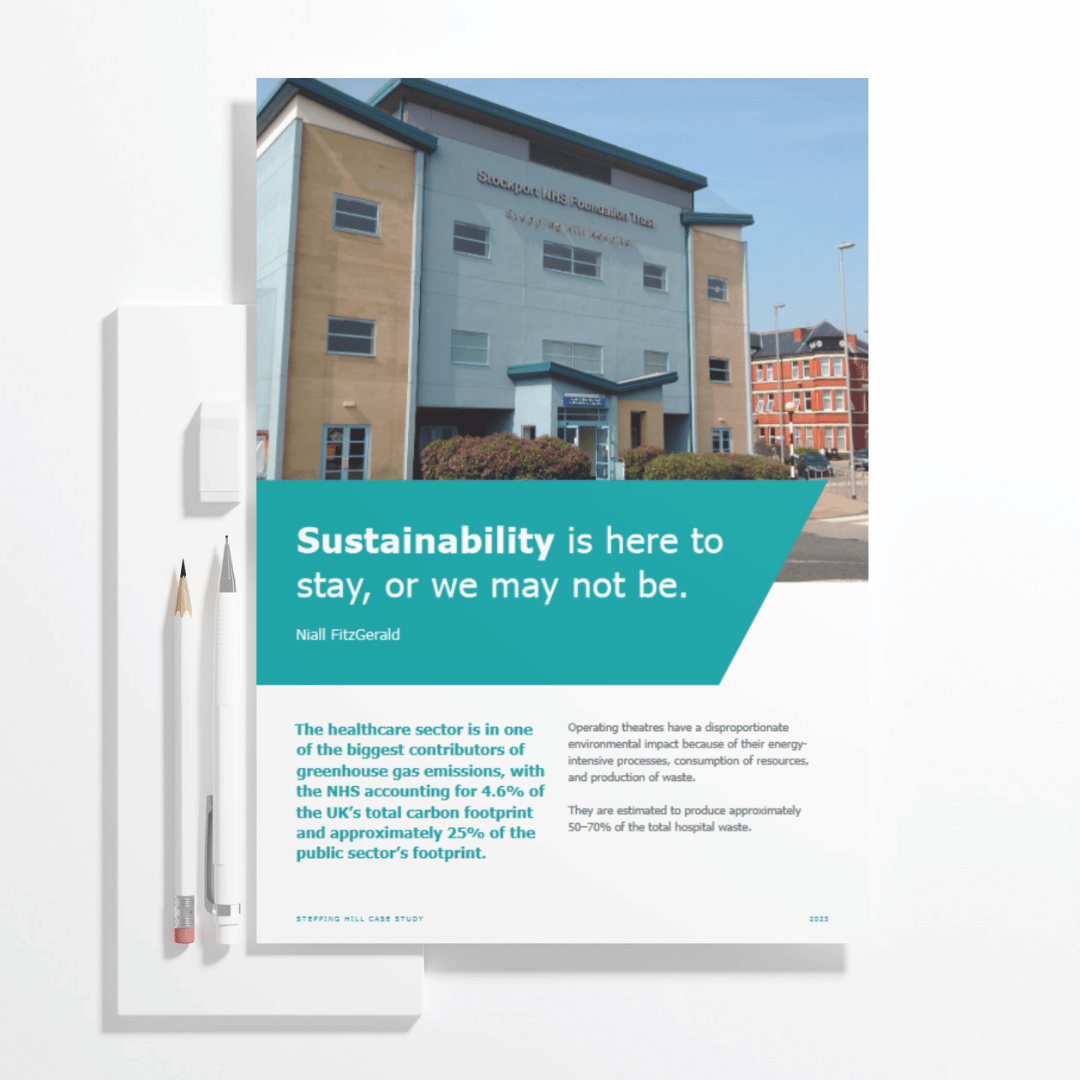
Stepping Hill NHS Trust: Reducing Waste and Costs Through Remanufacturing
Since introducing VANGUARD’s reprocessing service in 2022, Stepping Hill Hospital has significantly reduced waste and emissions, achieving savings of around £33,000 in the 2022/23 financial year.
By extending the life of single-use products, remanufacturing helps conserve resources and cut costs — all without compromising safety or performance. The programme integrates smoothly into existing workflows, allowing staff to continue using the products they’re already familiar with.
This case study highlights reprocessing as a key contributor to the NHS’s wider sustainability goals. It’s a well-established practice globally, with more than 25 years of use in countries such as the USA and Germany.
Barts Health NHS Trust: Remanufacturing EP Catheters
In partnership with Vanguard, this case study showcases how Barts Health NHS Trust is extending the life cycle of EP catheters while reducing waste and cutting costs.
The programme generates financial returns through rebates on collected devices and allows the use of remanufactured catheters, which are around 50% cheaper and result in a 50.4% reduction in greenhouse gas emissions. Some catheters can be safely reused up to four times.
Results for 2022:
- Waste prevented: 120.09 kg
- Revenue from collections: £14,006
- Estimated savings through reuse: £10,214
- Estimated CO₂ reduction: 556.80 kg
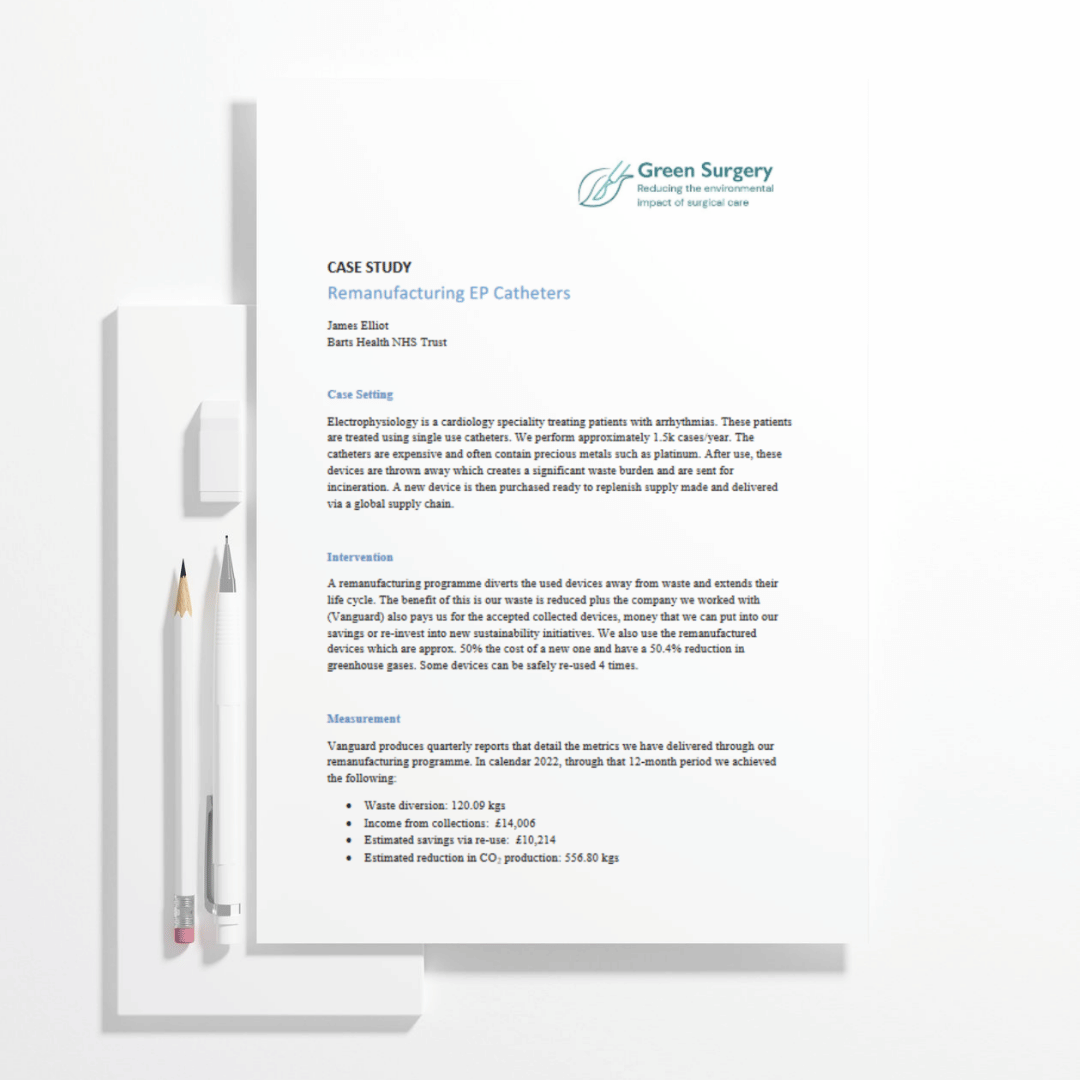
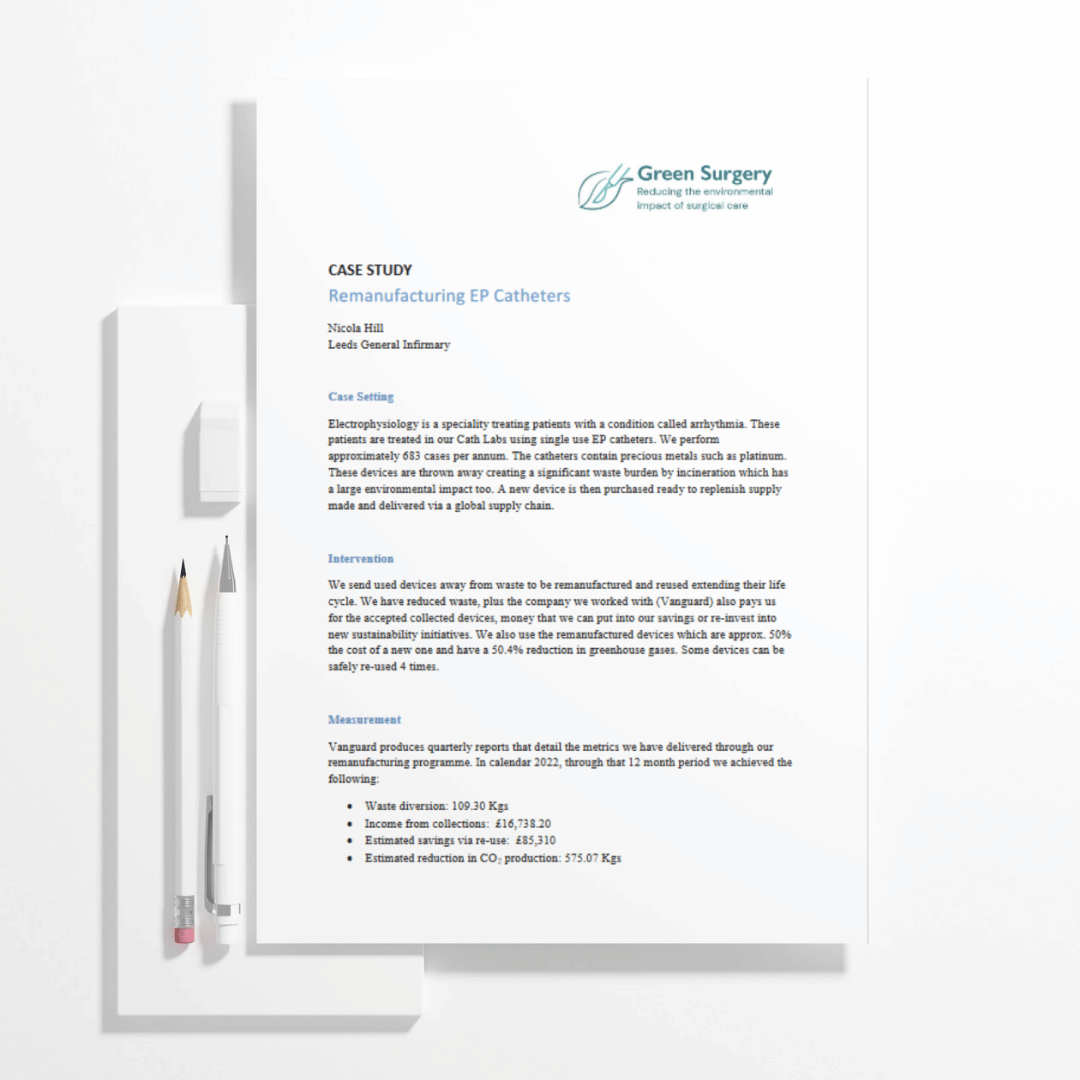
Leeds General Infirmary: Remanufacturing EP Catheters
The case study on the reprocessing of EP catheters at Leeds General Infirmary, presented by Nicola Hill, deals with the sustainable treatment of patients with cardiac arrhythmias.
Approximately 683 cases are performed annually using single-use catheters containing valuable metals such as platinum. After use, these devices are disposed of, resulting in significant waste volumes and environmental impact from incineration. New devices are procured through global supply chains.
Results for 2022:
Waste prevention: 109.30 kg
Revenue from collections: £16,738.20
Estimated savings through reuse: £85,310
Estimated reduction in CO2 production: 575.07 kg
Royal Devon University Hospital: Remanufacturing EP Catheters
This case study from Royal Devon University Hospital, led by Becky Whiteway, focuses on the reprocessing of single-use EP catheters used in the treatment of cardiac arrhythmias.
Around 600 procedures are carried out each year, and without reprocessing, these costly catheters — which contain valuable metals such as platinum — would be discarded after use, generating substantial waste and environmental impact.
Results for 2022:
- Waste prevented: 67.81 kg
- Revenue from collections: £9,469
- Estimated savings through reuse: £16,560
- Estimated CO₂ reduction: 125.28 kg
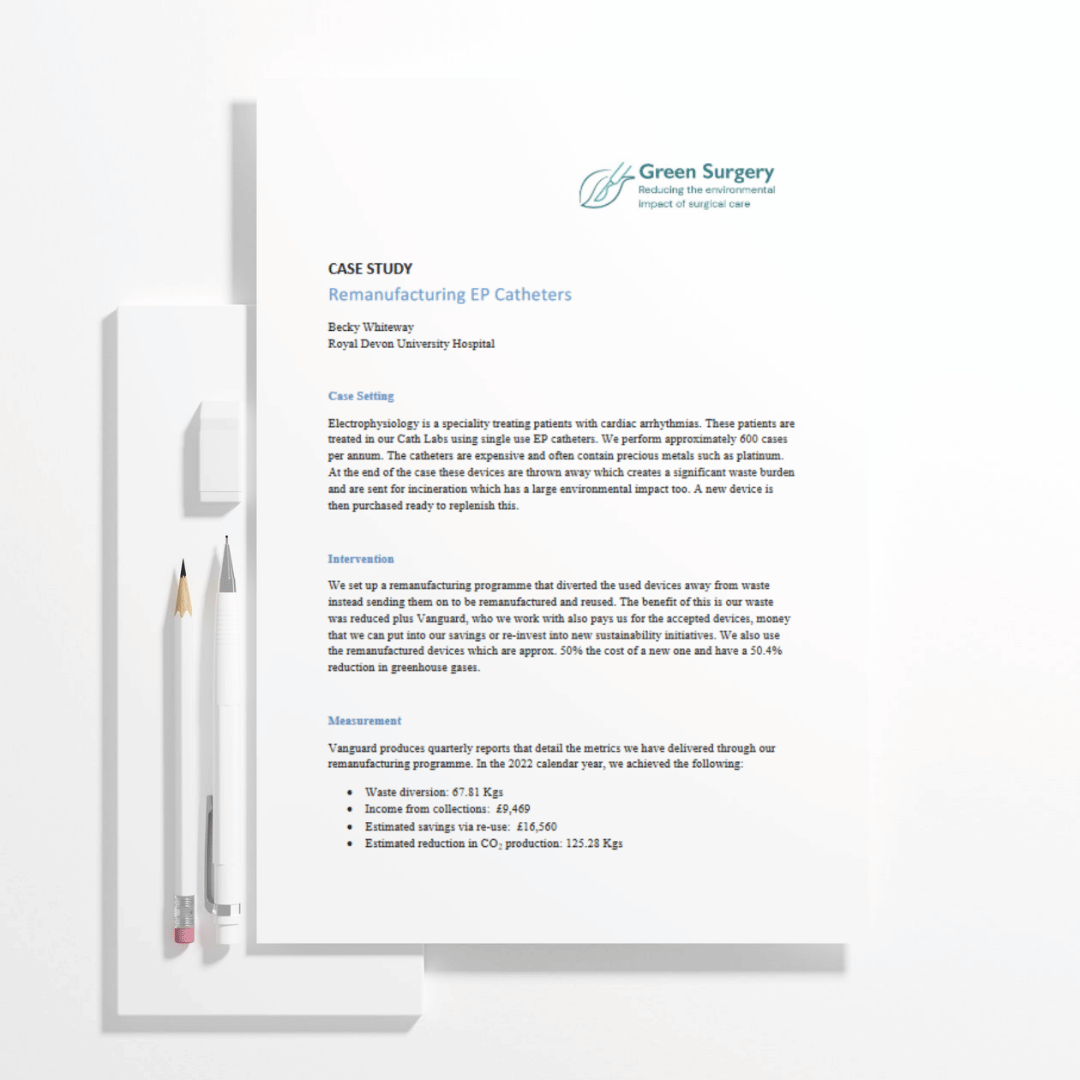
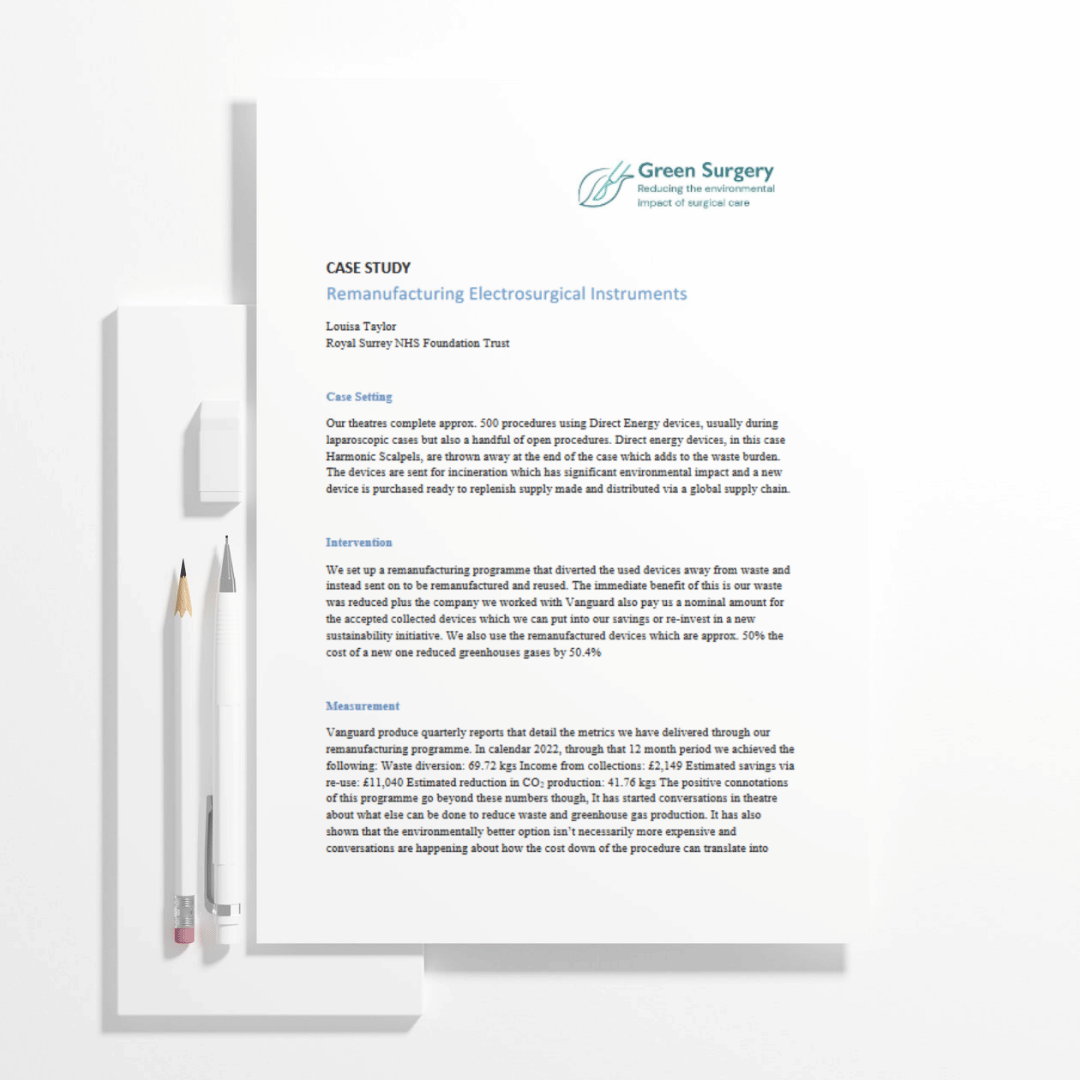
Royal Surrey NHS Foundation Trust: Remanufacturing Electrosurgical Instruments
Royal Surrey NHS Foundation Trust introduced a remanufacturing programme to collect, reprocess, and reuse electrosurgical instruments.
This initiative has helped reduce waste and lower costs, as remanufactured devices are approximately 50% cheaper and produce 50.4% fewer greenhouse gas emissions.
Results for 2022:
- Waste prevented: 69.72 kg
- Revenue from collections: £2,149
- Estimated savings through reuse: £11,040
- Estimated CO₂ reduction: 41.76 kg
Leeds Teaching Hospitals NHS Trust: Cutting Waste and Emissions with Vanguard
Leeds Teaching Hospitals NHS Trust has been reducing waste, CO₂ emissions, and costs by reprocessing single-use medical devices in partnership with Vanguard. Since 2019, used devices have been collected, reprocessed, and reused.
In 2021 alone, the hospital saved £76,610 and cut CO₂ emissions by 524.88 kg through the use of 604 reprocessed devices. This approach supports the hospital’s sustainability goals without compromising device safety or functionality.
Overall, the study highlights how reprocessing medical devices plays a vital role in lowering healthcare’s environmental impact while delivering significant cost savings.
